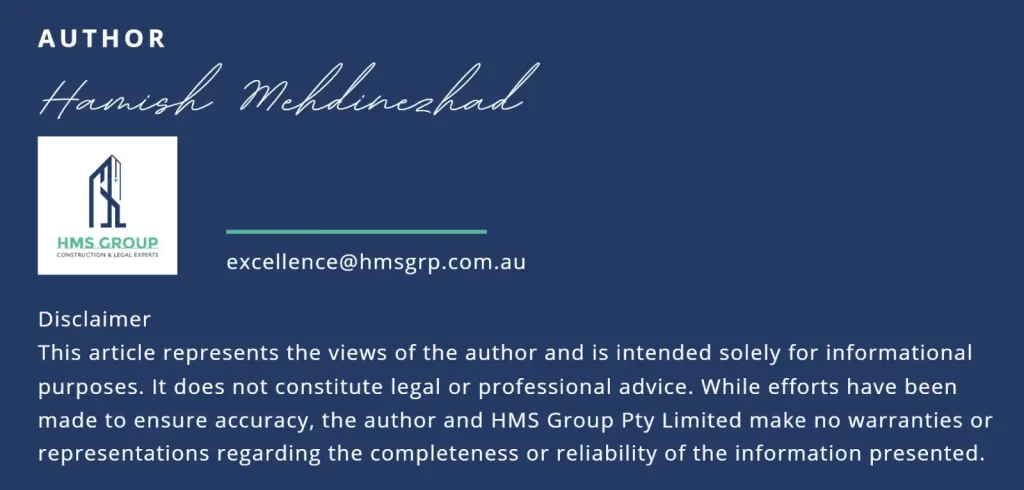How Expert Reports Shape Legal Outcomes
In legal disputes, courts and tribunals often rely on expert evidence to make fair and just determinations. Whether in construction disputes, professional negligence claims, or insurance matters, expert reports bridge the gap between technical complexity and legal decision-making.
However, the effectiveness of an expert’s report is often determined at the very outset—through the Letter of Instructions (LOI) provided by the instructing lawyer. A well-drafted LOI ensures that the expert’s opinion is clear, legally relevant, and admissible, whereas a vague or incomplete LOI can lead to delays, additional costs, and even challenges to the expert’s findings.
In my experience as an expert witness, I have seen firsthand how the quality of an LOI impacts the efficiency and effectiveness of expert reports. This article explores the importance of clear and detailed instructions, what they should contain, and how they ultimately support the legal process.
-
The Role of an Expert Witness in Legal Proceedings
Before discussing the LOI, it is crucial to understand the role of an expert witness in the legal system.
Unlike a fact witness, an expert witness does not advocate for a party. Instead, they provide independent, objective, and impartial analysis to assist the court or tribunal in understanding specialist technical issues beyond the ordinary knowledge of the decision-maker.
Courts and tribunals rely on expert evidence to:
- Clarify complex technical matters for legal professionals and judges.
- Provide a basis for assessing damages (quantum) in disputes.
- Evaluate liability or compliance with industry standards.
- Assist in alternative dispute resolution (ADR), such as mediation and arbitration.
Because of this, a poorly structured or incomplete expert report can result in evidence being challenged, dismissed, or given little weight—ultimately affecting the outcome of the case.
-
Why a Well-Drafted Letter of Instructions Matters
A Letter of Instructions (LOI) sets the foundation for an expert’s involvement in a case. It determines the scope of the expert’s assessment, the specific legal or technical issues to be addressed, and the admissibility of the final expert report.
A comprehensive and well-drafted LOI ensures:
- The expert understands exactly what is required.
- The expert’s opinion aligns with the legal framework of the case.
- There is no ambiguity regarding the scope of the expert’s role.
- The final expert report remains admissible and influential in proceedings.
Conversely, a poorly drafted LOI can result in:
- The expert misinterpreting their role or addressing irrelevant issues.
- Increased costs and delays due to the need for clarification.
- The expert’s evidence being discredited or deemed inadmissible.
-
What a Strong Letter of Instructions Should Contain
A well-prepared LOI should include the following elements:
- Case Background – A structured summary of the dispute, including key facts, allegations, and procedural history.
- Scope of Expert Engagement – The precise role of the expert (e.g., quantum assessment, defect analysis, causation assessment).
- Specific Questions to be Addressed – Clearly defined legal or technical questions that the expert must answer.
- Relevant Documents – A list of materials provided to the expert for review.
- Purpose of the Report – Whether the report is intended for court, tribunal, arbitration, or mediation.
- Applicable Legal Framework – Any relevant statutes, codes, or industry standards the expert should consider.
- Procedural Requirements – The format of the report, duty of the expert to the court, and compliance with expert witness codes of conduct.
- Deadlines & Timeframe – Clear guidance on submission dates and procedural deadlines.
- Point of Contact for Clarifications – A designated solicitor to whom the expert can direct questions.
Including these elements ensures that the expert understands the case, addresses the right issues, and prepares a report that is legally sound and procedurally compliant.
-
The Legal Impact of an Expert Report
The quality of an expert report can significantly influence case outcomes. A well-structured report that is logically reasoned, factually supported, and legally relevant can:
- Support a party’s claims or defenses
- Lead to early settlements by providing clear evidence.
- Withstand cross-examination and legal scrutiny in hearings.
- Assist courts in reaching fair and well-informed decisions.
By contrast, an ambiguous or poorly reasoned report—often the result of inadequate instructions—can lead to questions of credibility, legal challenges, and potential exclusion from evidence.
-
Strengthening the Expert-Lawyer Relationship
A well-drafted LOI also fosters a strong working relationship between legal teams and experts, ensuring smooth collaboration throughout the case.
A clear and structured LOI demonstrates:
- Professionalism in case preparation.
- Respect for the expert’s time and expertise.
- A commitment to efficiency and accuracy in expert evidence.
Legal teams that invest in drafting well-structured LOIs not only improve the quality of expert evidence but also enhance the credibility of their case before the courts and tribunals.
Final Thoughts: Why This Matters for Your Case
A Letter of Instructions is not just an administrative step—it is the foundation of effective expert evidence. The clarity, depth, and structure of an LOI directly influence:
- The admissibility and weight of the expert report.
- The efficiency and cost-effectiveness of expert work.
- The ability of courts and tribunals to make fair and informed decisions.
For lawyers, investing time in drafting a clear and precise LOI ensures that expert reports are strong, relevant, and persuasive. For experts, seeking clarification on vague instructions is essential to delivering reliable, legally sound opinions.
Need assistance with drafting or reviewing Letters of Instructions? I am happy to assist—let’s ensure expert evidence in your case is clear, effective, and aligned with legal requirements.





